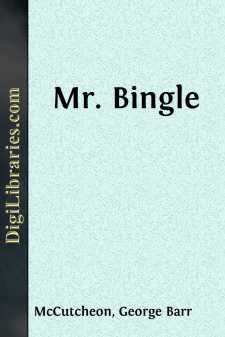Categories
- Antiques & Collectibles 13
- Architecture 36
- Art 48
- Bibles 22
- Biography & Autobiography 813
- Body, Mind & Spirit 138
- Business & Economics 28
- Children's Books 12
- Children's Fiction 9
- Computers 4
- Cooking 94
- Crafts & Hobbies 4
- Drama 346
- Education 46
- Family & Relationships 57
- Fiction 11821
- Games 19
- Gardening 17
- Health & Fitness 34
- History 1377
- House & Home 1
- Humor 147
- Juvenile Fiction 1873
- Juvenile Nonfiction 202
- Language Arts & Disciplines 88
- Law 16
- Literary Collections 686
- Literary Criticism 179
- Mathematics 13
- Medical 41
- Music 40
- Nature 179
- Non-Classifiable 1768
- Performing Arts 7
- Periodicals 1453
- Philosophy 64
- Photography 2
- Poetry 896
- Political Science 203
- Psychology 42
- Reference 154
- Religion 505
- Science 126
- Self-Help 81
- Social Science 81
- Sports & Recreation 34
- Study Aids 3
- Technology & Engineering 59
- Transportation 23
- Travel 463
- True Crime 29
Joy Ride
by: Dick Francis
Description:
Excerpt
y name is Andrews, third assistant vice president in charge of maintenance for Cybernetic Publishers.
It is not generally known that all the periodical publications for the world were put out by Cybernetics. We did not conceal the monopoly deliberately, but we found that using the names of other publishing houses helped to give our magazines an impression of variety. Of course, we didn't want too much variety, either; only the tried and tested kind.
Cybernetics gained its monopoly by cutting costs of production. It had succeeded in linking electronic calculators to photo-copying machines. Through this combination, all kinds of texts and illustrations could be produced automatically.
ormula punch cards, fed to the calculators, produced articles and stories of standard styles and substance. Market analysts in the research division designed the formulas for the punch cards. An editing machine shuffled the cards before giving them to the calculating machines.
The shuffling produced enough variation in the final product to suggest novelty to the reader without actually presenting anything strange or unexpected.
Once the cards were in the machine, they set off electronic impulses which, by a scanning process, projected photographic images of type and illustrations to a ribbon of paper. This ribbon ran through a battery of xerographic machines to reproduce the exact number of copies specified by the market indicator.
Everything worked smoothly without the necessity for thought, which, as you know, is expensive and often wasteful.
In the second week of the Calamity, one machine after another seemed to go put of order. I couldn't tell whether the trouble was in the cards, in the research office, or in the machines.
First, one produced something entitled "A Critique of the Bureaucratic Culture Pattern." Then another would give out nothing but lyric poems. A third simply printed obvious gibberish, the letters F-R-E-E-D-O-M. And one of our oldest machines ran off a series of limericks of a decidedly pungent flavor.
I did all I could to straighten them out. Even our cleaning compounds were analyzed for traces of alcohol. But we weren't able to locate the trouble. And we didn't dare shut off the power because that would have backed up our continuous stream of pulp and paper all the way to Canada, Alaska and Scandinavia. There didn't seem to be anything to do but let the publications go on through to the distribution center.
Before they were returned to the pulp mills, some of the publications reached private hands and created something of a stir, especially the limericks. One of them went something like this: "There was a young...." (Passage defaced.)
2
y name is Minton, traffic officer emeritus on the Extrapolated Parkway.
The Parkway was equipped with the usual electronic controls to propel cars magnetically, to maintain a safe distance between all cars, and to hold them automatically in their proper lanes. The controls also turned cars off the Parkways at the proper exit, according to the settings on the individual automobile's direction-finder.
On the ninth day of the Calamity, the controls became erratic....






















